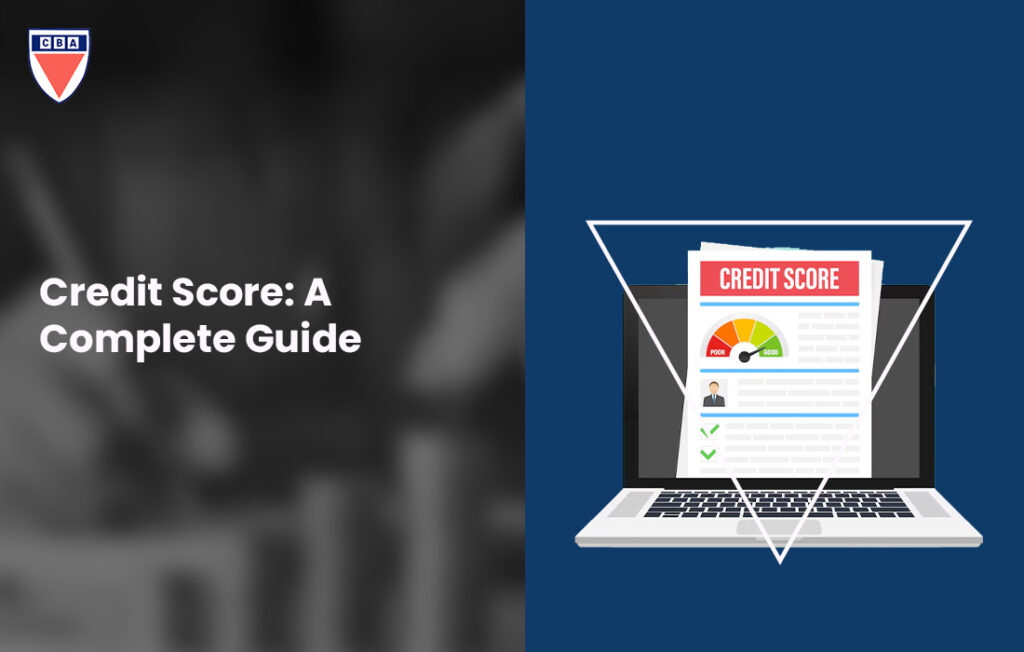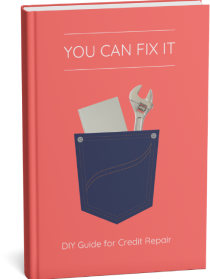Jumping into the world of credit can feel like a tricky maze. Once you know your credit score, you’ll understand how to open a whole new world of financial opportunities. Whether you are applying for a mortgage, car loan, or a new credit card, your credit score is a key part of the process. Let’s discuss everything you need to know about credit scores: what they are, what factors affect them, and how they affect your ability to qualify for loans in the first place.
What is a Credit Score?
A credit score is a 3-digit number that indicates your creditworthiness. Banks use it as a reporting tool to describe how likely you are to pay them back. Credit scores, which are based on a person’s credit history, are calculated by credit reporting agencies (Experian, Equifax, and TransUnion). Credit scores can range from 300 to 850, with higher numbers indicating less risk to lenders. Your credit score is based on information in your credit report—payment histories, credit utilization amounts, and the length of your credit history.
Capital One offers an excellent resource to help you understand credit score ranges and what a lender’s perspective is concerning loans.
Credit Score Ranges
Your credit score will fall into one of these bands, which demonstrate the likelihood of being approved for loans and the type of interest rates you might receive on those loans. Below is a chart to help clarify the definitions of each band.
-
Poor Credit (300-579):
Scores in this range are seen as poor, and it becomes difficult to be approved for loans. If you are approved, it will most likely be with higher interest rates. A poor score indicates a history of missed payments or more serious credit issues.
-
Fair Credit (580-669):
Scores in this range may still allow you to qualify for loans, but they will not be favorable. In this range, you may get higher interest and fewer types of loans available. It is not the worst category, but it does show you have had some trouble, financially.
-
Good Credit (670-739):
Typically, a good credit score will allow access to loans with good interest rates. The lender will view you to be of low risk. In this range, you are probably able to qualify for most loans, including a mortgage, a personal loan, and an auto loan, with favorable terms.
-
Excellent Credit (740-850):
An excellent credit score positions you in the top category, meaning you are seen as an excellent borrower. You will likely get approved for loans with the lowest interest rates and the best terms. This score suggests you have consistently managed your credit well and can be trusted to repay borrowed money.
Factors that Influence Your Credit Score
Credit scores are made up of several factors, each assigned a certain percentage to your total score. Knowing how these work can help improve your credit score ultimately.
-
Payment History (35%):
Your payment history has the largest impact on your credit score. Lenders want to see that you consistently paid your bills on time with your credit cards, loans, and mortgages. Late payments, defaults, and bankruptcies will severely impact your score.
-
Credit Utilization (30%):
Credit utilization is the percentage of available credit you are using. Maintaining a low utilization ratio (ideally under 30%) is good evidence to lenders that you can manage debt without issue. If your ratio is high, it tends to indicate to lenders that you are overleveraged and may have difficulties repaying any future debt.
-
Length of Credit History (15%):
The longer your credit history, the better. Lenders prefer an established credit history because it is a significant predictor of future credit behavior. When lenders are viewing your credit history, they will look at the age of your oldest credit account and the average age of all accounts.
-
Types of Credit Used (10%):
The mixture of credit accounts you have, such as credit cards, mortgages, and installment loans, will also affect your score. The greater variety of credit you have, generally the better; but remember, the type of credit mix you have is not the most important factor.
-
Recent Inquiries (10%):
Every time you apply for credit, the creditor will make a “hard inquiry” on your report that will temporarily lower your score. Multiple inquiries in a short period of time, especially for large amounts of credit, may raise a red flag with creditors that you may be experiencing a monetary crisis.
How Credit Scores are Used for Loans
Along with other factors, your credit score will be used to determine the loan type you may obtain. Your score is used by lenders as an indicator of your creditworthiness, financial past, habits, and general unknowable risk factors.
Below is how your credit scores get used for various types of loans:
Mortgage Loans
A mortgage is a major financial obligation, and one of the most important factors that determines your eligibility and terms is your credit score. Most mortgage lenders will utilize your credit score as an assessment of the risk in providing you the money needed for a purchase. Here’s how it stacks up:
-
High Credit Score (740 and above):
If you have an exceptional credit score, you are considered a low-risk borrower. Lenders will favor you seriously, therefore dramatically increasing your chances of being approved for a mortgage. Not only will you likely be approved, but you should get approved for lower interest rates, meaning you spend less for the life of the loan. We’re talking about potentially thousands of dollars here, meaning a huge commitment! Additionally, lenders may grant more favorable deposits and other grants, too.
- Moderate Credit Score (700-739):
With a good credit score, you will likely get approved for a mortgage, but the interest rates may be slightly higher than for homeowners with higher credit scores. You will still have the same decent terms, but your monthly payments will have a be slightly higher monthly payments of a homeowner with a higher credit score. -
Low Credit Score (below 700):
A low credit score is not a plus. You probably can get a mortgage, but you will experience higher interest rates and more restrictive terms. You may have to put a larger down payment to offset their risk. You may only qualify for subprime loans, which have more costs and restrictions as well. In some cases, if your score is substantially low, you might not even be able to get a mortgage.
In short, as your credit score goes up, so too does the probability of getting a mortgage with a lower interest rate, which is what you really want in order to lower the cost of owning a home.
Auto Loans
Your credit score will also affect your auto loan eligibility and terms. Your credit score impacts auto loans this way. Like mortgages, auto loans are referred to as secured loans, meaning the car is the collateral for the loan.
-
High Credit Score:
If your credit score is high, you have a better chance of being approved for a better auto loan and lower interest rates. If your credit score is 700 or higher, lenders are going to offer better financing for your auto loan.
-
Moderate Credit Score:
If you fall into the range of a 600 credit score, you may still qualify for an auto loan; the terms may not be favorable, though. The lenders may give you a higher interest rate and higher monthly payments. You may also have to make a bigger down payment than someone with a higher score.
-
Low Credit Score:
If you have bad credit (under 600), you may still qualify for an auto loan, but your interest rate may significantly increase. This is going to make the total cost of the car higher throughout the life of the loan. Some lenders may also require you to have a much larger down payment in the area of the bigger risk they are giving you.
All in all, a higher credit score gives you a better level of access to cheaper auto loans, and a lower score gets you a more costly loan.
Personal Loans
A personal loan is an unsecured loan, which means there is no collateral required. This automatically makes a personal loan higher risk for lenders, so it raises the stakes in determining whether or not you are approved,, and your credit will weigh heavily into that decision.
-
High Credit Score:
When lenders see that you have a high credit score, they often see you as a responsible borrower. This makes it easier to be approved for a larger loan with a lower interest rate. If you’re approved for a low interest rate, you save money on the total repayment of the loan. This is particularly beneficial when you are borrowing a large amount, such as a debt consolidation, home renovations, or medical bills.
-
Moderate Credit Score:
If you have a credit score in the 600s, you are eligible for a personal loan but could see lower interest rates. This means while you will still borrow the amount needed, you will pay more to the lender through interest, which, in turn, increases the total amount of the loan.
-
Low Credit Score:
Getting a personal loan with a poor credit score may not happen at all. If the lender approves you, you will receive interest that is higher and loan terms that are stricter. Some lenders will limit the amount you can borrow or restrict the timeframe to repay the loan, which puts further pressure on your finances.
Credit Cards
One of the biggest factors that credit card issuers will consider when deciding to approve you is your credit score. Here is how your score can affect your ability to be issued a credit card and the terms available to you:
-
High Credit Score:
If you have a good credit score (in the range of 740 and above), you will have a lot of choices for credit cards, with lower interest rates, higher credit limits, and rewards programs (cash back, travel points, etc). Lenders are willing to extend you a higher credit limit because they view you as a low-risk borrower, which means you are a trustworthy borrower. This means that you will also have access to the best credit card offers.
-
Moderate Credit Score:
If your score is in the 600s, you might still be eligible for a credit card, but the terms are likely to be less favorable. The credit card may come with a higher interest rate or a lower credit limit. You may have limited options and may also be limited to cards with fewer rewards or incentives.
-
Low Credit Score:
If you have a bad credit score, it will be difficult to qualify for a credit card. If you are approved for a credit card, it will likely be a secured credit card or a store credit card, which will usually have higher interest rates and lower limits. A secured credit card will require you to deposit collateral, meaning you may have lower access to receive credit.
Credit scores are a key component in qualifying for a credit card with the best features. A good credit score allows you to qualify for better rewards and lower rates, while a low credit score that is low means you will not have as many options and will pay more interest.
How to Increase Your Credit Score
There is no other way to put it: if you want to qualify for the “best” loans and credit cards, and in extreme situations, even jobs, you will want a solid credit score. If your credit score was low, don’t panic…there are things you can do to fix and improve your credit score and get your finances back in working order. Here is a thorough explanation of the main things you can do:
1. Make Sure You’ve Paid Your Bills
When your score is calculated, timely payments are one of the most significant factors. Payment history is a big part of your score, so it will help your credit when you stay on top of your bills and pay them promptly. Be careful with being a few days late. Most consumer accounts have low kindness levels for late payments, which will cost you, and your future credit health will also be negatively impacted.
To help you pay your bills on time, set alerts (if your bank has a good app) or automate payments if the option is there. As time passes and you’re staying on time with payments, this will help your credit history and score.
2. Lower Balance on Credit Cards
The last area of information on the credit report that is significant for lending institutions is the “credit utilization” ratio of your monthly credit held. This is calculated by the available credit that you’re using on the card. You are generally aiming for less than 30% utilization. So if your credit card has a limit of ₹100,000, try your best to stay below ₹30,000 utilization when borrowing on the credit card. High balances on your credit card may be an area where you can improve your score in a relatively short amount of time. Not only are you showing lenders that you’re using credit responsibly, but you’re also impacting your Debt-to-Income ratio, which measures your financial health as well.
3. Don’t Open Too Many Accounts
Opening several credit accounts may be tempting as a way of increasing your credit limits or receiving new credit, but you can hurt yourself in the long run. Each time you apply for any type of credit card or loan, the lender performs a hard inquiry, and this will cause a slight drop in your credit score. If you open a lot of accounts within a short amount of time, you may look less stable financially, and you can also have a negative effect on your credit profile. Therefore, we recommend only opening new accounts that you really need and avoiding applying for a bunch of credit cards or loans at the same time.
4. Review Your Credit Report on a Regular Basis
Even if you are managing your finances as best you can, errors and inaccuracies on your credit report can hold your score back. You should check and review your credit report at least once per year to make sure that everything is accurate. You are entitled to one free credit report from CIBIL, Equifax, and Experian. If you do see errors, such as accounts that do not belong to you or incorrect late payments, we advise that you dispute them. Correcting mistakes can have a big impact on your credit score.
Conclusion
Your credit score is so much more than just a number: it gives you insight into your financial habits and is a key component to qualifying for loans and credit. When you understand how your score is created, what a good score is, and how to improve it, you will be well on your way to better loans with more options.
It takes time to build up your score, however, the benefits of having a better credit score are worth the effort, including lower interest rates, better chances of approval on applications for loans, and more options in life.
Are You Ready for Better Loan Terms?
Your credit score is your key to getting better terms on your loan! If you want to own your credit score and get better loans, today is the day to take action, check your credit report, pay your bills on time, and keep your credit utilization low.
Whether you are looking for recommendations that are personalized to your unique situation, or want to start to increase your score right now, please feel free to reach out to our credit experts on staff with Credit Bridge Advisors or use our collective resources to provide you guidance on your financial journey.
Start building a better credit score today; the future of your finances is in your hands!






